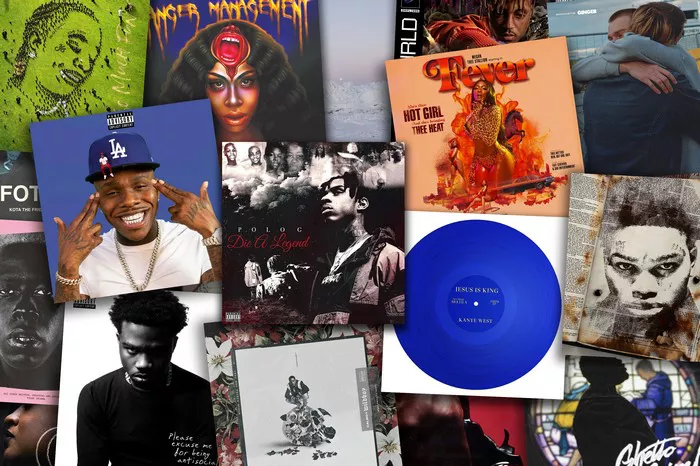Hip hop music, a genre that has transcended its humble beginnings in the South Bronx to become a global cultural phenomenon, is a multifaceted art form that rests on three fundamental principles. These principles are the very essence of hip hop music, shaping its identity and providing a framework for its evolution. In this article, we will delve deep into the world of hip hop music.
1. Rhythm and Poetry: The Heartbeat of Hip Hop Music
At the core of hip hop music lies a deep and abiding connection to rhythm and poetry. This union of beat and lyricism is the lifeblood of the genre, giving it a unique and unmistakable identity. Hip hop music, often simply referred to as “hip hop,” draws its rhythmic inspiration from a rich tapestry of musical traditions, ranging from African drumming to funk and soul. It is the rhythm that compels the body to move, the head to nod, and the feet to tap, making hip hop music an irresistible force on dance floors worldwide.
Hip hop music has a remarkable ability to bridge cultural divides, uniting people from diverse backgrounds through its infectious beats and universal themes. The rhythm in hip hop music serves as a unifying language, transcending boundaries and bringing people together in celebration of life, struggle, and triumph.
2. The Art of DJing: Crafting Soundscapes in Hip Hop Music
The second principle of hip hop music revolves around the art of DJing. In the early days of the genre, the DJ was not just a mere selector of records; they were the architects of sonic landscapes, the maestros of the turntables, and the curators of the auditory experience. The DJ’s role in hip hop music cannot be overstated, as they provide the canvas upon which rappers paint their lyrical portraits.
The DJ in hip hop music is responsible for seamlessly blending and scratching records, creating intricate and dynamic soundscapes that captivate the audience. These sonic textures serve as the backdrop for the MC (Master of Ceremonies) or rapper to convey their message. The symbiotic relationship between DJ and MC is at the very heart of hip hop music, with each feeding off the energy and creativity of the other.
As hip hop music evolved, so did the role of the DJ. Turntablism emerged as a distinct art form within hip hop, with DJs pushing the boundaries of what was possible with two turntables and a mixer. Techniques like beat juggling, scratching, and sampling became integral to hip hop music production, elevating the DJ to the status of a virtuoso performer.
3. Storytelling and Social Commentary: Hip Hop Music’s Narrative Power
Beyond its rhythmic prowess and DJing wizardry, hip hop music is a powerful medium for storytelling and social commentary. The genre has the unique ability to encapsulate the complexities of life in the inner city, reflecting the hopes, struggles, and aspirations of marginalized communities. Through its lyrics, hip hop music provides a platform for artists to speak truth to power and address issues ranging from poverty and racism to police brutality and economic inequality.
The storytelling element of hip hop music is vivid and unapologetic. Rappers use their verses to paint vivid pictures of their lived experiences, taking listeners on journeys through the neighborhoods they call home. Whether it’s Nas narrating the gritty realities of Queensbridge in “N.Y. State of Mind” or Kendrick Lamar’s introspective exploration of Compton in “Good Kid, M.A.A.D City,” hip hop music offers a window into worlds often overlooked by mainstream media.
Furthermore, hip hop music has been a catalyst for social change. Artists like Public Enemy, N.W.A., and Lauryn Hill have used their music to shine a spotlight on systemic injustices and advocate for political and social transformation. The genre’s capacity to amplify marginalized voices and challenge the status quo has made it a potent tool for social activism and a driving force for change.
The Evolution of Hip Hop Music: Preserving Tradition, Embracing Innovation
While these three principles—rhythm and poetry, the art of DJing, and storytelling and social commentary—form the foundation of hip hop music, the genre has shown a remarkable ability to evolve and adapt over time. As hip hop has spread across the globe, it has incorporated elements from various musical traditions, resulting in an ever-expanding sonic palette.
One notable evolution in hip hop music is the fusion of diverse musical genres. Artists like Kanye West, who seamlessly blend hip hop with gospel, R&B, and electronic music, exemplify the genre’s willingness to experiment and push boundaries. These innovations not only breathe new life into hip hop music but also introduce it to new audiences.
Moreover, the digital age has revolutionized the production and distribution of hip hop music. The advent of digital audio workstations (DAWs) and online platforms has democratized music production, allowing aspiring artists to create and share their work with a global audience. This democratization has led to an unprecedented level of diversity within hip hop music, as artists from all walks of life have the opportunity to contribute to the genre’s rich tapestry.
Conclusion
In conclusion, hip hop music is a genre that embodies a rich tapestry of cultural influences and artistic principles. Its three foundational pillars—rhythm and poetry, the art of DJing, and storytelling and social commentary—have not only defined the genre but also allowed it to transcend geographical and cultural boundaries. Hip hop music is more than just a genre; it is a cultural phenomenon that has given voice to marginalized communities, united people through the power of rhythm, and challenged societal norms.
As hip hop music continues to evolve and adapt, it remains a dynamic force in the world of music and culture. It continues to influence and be influenced by various genres, providing a platform for artists to express themselves and engage with pressing social issues. With its enduring legacy and ability to speak truth to power, hip hop music will undoubtedly continue to shape the cultural landscape for generations to come.

